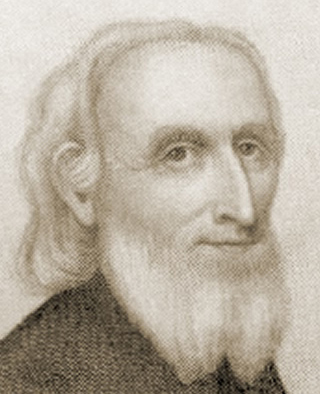22 Mar On This Day in UB History: March 23
 Martin Boehm, one of the two founders of the United Brethren Church, passed away on March 23, 1812. It seemed to have been somewhat unexpected; he had enjoyed good health, and was riding short distances on horseback until a few days before his death. But when it came, it came fast, with increasing weakness and debility.
Martin Boehm, one of the two founders of the United Brethren Church, passed away on March 23, 1812. It seemed to have been somewhat unexpected; he had enjoyed good health, and was riding short distances on horseback until a few days before his death. But when it came, it came fast, with increasing weakness and debility.
At one point, Boehm asked to be raised up in bed, saying he wanted to sing and pray. He did both in what historian Henry Adams Thompson described as “a clear and distinct voice.” He then laid back on his pillow. “And behold,” Thompson wrote, “he was no more.”
Boehm’s story is one of the best-known United Brethren stories. In 1756, at age 31, was selected by lot to become a Mennonite pastor, but he felt unworthy and lacked confidence in his preaching skills. It was written that he would “stammer out a few words and then be obligated to sit down in shame and remorse.” He agonized over this for months, and after much prayer, realized that though he preached about salvation, he, himself, was not saved. Toward the end of his life, as he reflected on those early days as a minister, Boehm said, “I lived and preached according to the light I had. I was a servant, and not a son.”
One day as Boehm plowed his fields, he knelt at the end of each row to pray, and the word “Lost, lost” continually hovered over him. Finally, halfway through a row, he broke. Falling to his knees, he cried out, “Lord save, I am lost!” The words of Luke 19:10 immediately came to him, “I am come to seek and save that which is lost.” Joy poured through him. He ran to the house and told Eva what had happened.
From that day on, preaching became a joy—a passion—and he zealously spread the message of salvation to which he had been oblivious for so long. Lives were transformed.
About ten years later, Boehm preached about his “Lost, Lost” experience at Isaac Long’s barn. William Otterbein, in the audience that day, had experienced something very similar several years before. So after Boehm concluded his message, Otterbein embraced Boehm and said, “We are brethren.” And here we are today, 250 years later.

No Comments